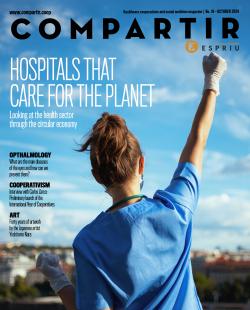
Exercise: an ally against influenza that you may not be aware of
Cold weather heralds the onset of seasonal influenza. Are you susceptible to such illnesses? This routine could minimise your chances of catching the flu.
The warm, damp and enclosed environments in which we take shelter away from the cold winter temperatures facilitate the spread of viral infections, significantly increasing the incidence of influenza during this season. Although we are more exposed than ever to the possibility of contagion, there are several easily available preventive measures; regular exercise remains one of the most accessible options, but few people are aware of this. Although some had informal knowledge of its beneficial effects, until recently there was no scientific evidence to support this popular belief that sport could beat the flu. However, after years of research, experts have proven that a good physical exercise routine does indeed help strengthen the immune system, leading to greater resistance to respiratory infections and speeding up the process of recovery.
We owe this finding to a study by The British Journal of Sports Medicine, which collected data from more than half a million participants over nine years to prove the impact of physical exercise on influenza prevention. The results were surprising and encouraging: it concluded that the likelihood of infection decreased by 21% in participants who exercised 10 to 149 minutes per week and by up to 50% in those who exercised 301 to 600 minutes per week. However, those who exceeded the 600-minute limit saw no increased immunity against the virus.
Experts therefore recommend moderation and, above all, not overdoing it, since in participants who did more than seven muscle-building sessions a week, exercise was actually counterproductive and their chance of contracting the flu increased by 40 per cent.
How does exercise help us fight the flu?
Exercise causes internal changes that strengthen the immune system and reduce the risk of mortality. However, the specific effects of physical activity are not yet proven, although there are several theories:
- It helps clear bacteria from the respiratory tract.
- Increased body temperature after physical activity decreases the likelihood of bacterial growth.
- It helps fight stress, which involves hormones that make it easier for the body to become ill.
- White blood cells and antibodies circulate more quickly and can detect the presence of pathogens in the body sooner.
Ultimately, even if the cold weather leads us to stay indoors, watching a movie or reading behind closed doors, we should strive to establish a weekly exercise routine during the winter, be it indoors or outdoors. Of course, exercise alone is not a miracle cure, and prevention and recovery from influenza involves a broad array of factors and other healthy lifestyle habits that are not restricted to physical activity alone. However, we should all establish a weekly exercise routine, as it not only strengthens our immune system, but also has a positive impact on many other areas of our health.




